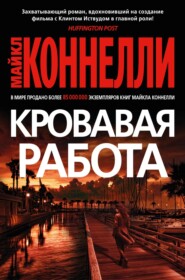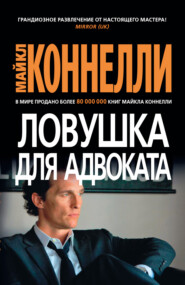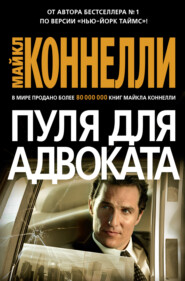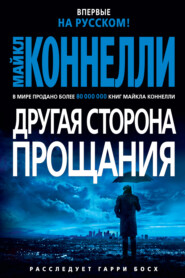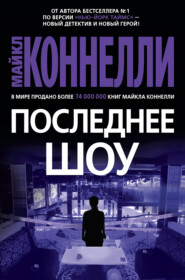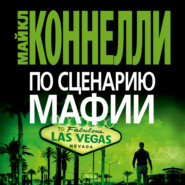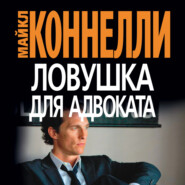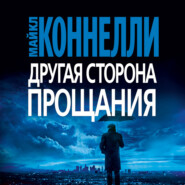По всем вопросам обращайтесь на: info@litportal.ru
(©) 2003-2024.
✖
The Locked Room
Автор
Год написания книги
2019
Настройки чтения
Размер шрифта
Высота строк
Поля
‘And so the State Police immediately decide to strengthen the special squad.’
‘With you?’
‘No,’ said Kollberg. ‘Actually, I think, with you. But this order came in last Friday, while I was still in charge here. So I made an independent decision.’
‘Namely?’
‘Namely to spare you that lunatic asylum, and move in myself to strengthen the special squad.’
‘Thanks.’ Martin Beck really meant what he'd said. To work in a special squad presumably implied a daily confrontation with, for example, the National Police Commissioner, at least two department heads, assorted superintendents, and other bom bastic amateurs. Kollberg had voluntarily taken these trials upon himself.
‘Well,’ Kollberg said, ‘in exchange I've got this.’ He put a thick index finger on the plastic file.
‘What's that?’
‘A case,’ said Kollberg. ‘Really a most interesting case, not like bank hold-ups and things. The only pity is …’
‘What?’
‘That you don't read detective stories.’
‘Why?’
‘Because if you did you might have appreciated it more. Rönn and Larsson think everyone reads detective stories. Actually it's their case, but just now they're so overloaded with misery that they're inviting applications for their little jobs, from anyone who wants one. It's something to think about. Just sit very still and think.’
‘Okay, I'll look it over,’ said Martin Beck dispassionately.
‘There's been no word about it in the papers. Aren't you curious?’
‘Sure. 'Bye then.’
‘See you,’ said Kollberg.
Outside the door he stopped and stood still a few seconds, frowning. Then he shook his head in a troubled way and walked over to the lift.
5 (#u3bf999e2-49f3-5162-8699-d15604ac1633)
Martin Beck had said he was curious about the contents of the red file; but this was not really the truth. Actually it was of no interest to him whatever. Why, then, had he chosen to give an evasive and misleading answer to the question? To make Kollberg happy? Hardly. To deceive him? Even more far-fetched. For one thing, there was no reason to do so; and anyway it was impossible. They'd known one another far too well and for too many years. Besides which Kollberg was one of the least gullible men he'd ever met. Maybe to deceive himself? Even this thought was absurd.
Martin Beck went on chewing over this question as he completed his inspection of his office. When he'd finished with the drawers he passed on to the furniture, moved the chairs around, turned the desk to another angle, shoved the filing cabinet a few inches nearer to the door, unscrewed the office lamp and placed it on the right-hand corner of his desk. Obviously his deputy had preferred to have it on the left, or else it had just gotten that way. In little things Kollberg often acted haphazardly. But where important matters were concerned he was a perfectionist. For example, he'd waited till he was forty-two to get married, with the explicit motivation that he wanted a perfect wife. He'd waited for the right one.
Martin Beck, on the other hand, could look back at almost two decades of unsuccessful marriage, to a person who certainly didn't seem to have been the right one. Anyway he was divorced now; he supposed he must have lingered until it was too late.
Sometimes in the last six months he'd caught himself wondering if the divorce, all things considered, hadn't been a mistake. Maybe a nagging, boring wife was at least more exciting than no wife at all?
Well, that was of no consequence. He took the vase of flowers and carried it in to one of the secretaries. This seemed to cheer her. Martin Beck sat down at his desk and looked about him. Order had been restored.
Was it that he wanted to convince himself nothing had changed? A pointless question, and to forget it as soon as possible he pulled the red file towards him. The plastic was transparent, and he saw immediately that it concerned a murder. That was okay. Murder was part and parcel of his profession. But where had it happened? Bergsgatan 57. Almost on the very doorstep of the police headquarters.
Usually he would have said it was no concern of his, or of his department, but of the Stockholm Criminal Investigation Department. For a second he felt tempted to pick up the phone, call up someone on Kungsholmen, and ask what all this was actually about. Or quite simply to stuff it all into an envelope and return it to its sender. He felt an urge to be rigid and formal – an urge so strong that he had to exert all his strength to suppress it. He looked at the clock in order to distract himself. Lunchtime already. But he wasn't hungry.
Martin Beck got up, went out into the men's room, and drank a mug of lukewarm water.
Coming back he noticed the air in his office was warm and foetid. Yet he did not take off his jacket or even loosen his collar. He sat down, took out the papers, and started to read.
Twenty-eight years as a policeman had taught him a lot of things, among them the art of reading reports and rapidly sifting through repetitions and trivialities – the capacity to discern a pattern, if any existed.
It took him less than an hour to read conscientiously through the document. Most of it was ill-written, some was downright incomprehensible, and some sections were formulated particularly badly. He immediately recognized the author. Einar Rönn, a policeman who, stylistically speaking, seemed to take after that comrade in officialdom who in his celebrated traffic regulations had declared, among much else, that darkness falls when the streetlights are lit.
Martin Beck leafed through the papers once again, stopping here and there to check certain details. Then he laid down the report, put his elbows on the desk and his forehead into the palms of his hands. Frowning, he thought through the apparent course of events.
The story fell into two parts. The first part was mundane and repulsive.
Fifteen days ago, viz., on Sunday, 18th June, a tenant at Bergsgatan 57 on Kungsholmen had called the police. The conversation had been registered at 2.19 p.m., but not until two hours later had a patrol car with two officers arrived at the place. At most the house on Bergsgatan was no more than nine minutes' walk from the Stockholm Police Headquarters; but the delay was easily explained. The capital was suffering from an atrocious shortage of policemen; besides which it was the summer holidays, and a Sunday to boot. Moreover, nothing had indicated that the call was particularly urgent. Two constables, Karl Kristiansson and Kenneth Kvastmo, had entered the building and talked to the caller, a woman living two flights up in the part of the house facing the street. She had told them that for several days now she'd been irritated by an unpleasant smell in the stairwell and expressed a suspicion that all might not be as it should.
Both officers had instantly noticed the odour. Kvastmo had defined it as arising from putrefaction; according to his own way of putting it, it was strongly reminiscent of the stench of rotten meat. A closer sniff – Kvastmo's again – had led the men to the door of a first-floor flat. According to available information, it was the door of a one-room flat, inhabited for some time by a man of about sixty-five, whose name might be Karl Edvin Svärd. The name had been found on a handwritten piece of cardboard under the doorbell. As it might be supposed that the smell arose from the body of a suicide, or of someone who had died from natural causes, or of a dog – still according to Kvastmo – or possibly of some sick or helpless person, they had decided to break in. The bell seemed to be out of order, but no amount of banging on the door had evoked any reaction. All their attempts to contact a caretaker or representative of the landlord or anyone else holding master keys had been unsuccessful.
The policemen therefore requested permission to break into the flat and received orders to do so. A locksmith had been called, causing yet another half-hour's delay.
On his arrival the locksmith had found that the door was equipped with a jemmy-proof lock and that there was no letter box. The lock was then drilled out with the aid of a special tool, but even this had not made it possible to open the door.
Kristiansson and Kvastmo, whose time had now been taken up by this case far beyond their normal working hours, asked for new instructions and were ordered to open the door by force. To their question whether someone from the Criminal Investigation Department ought not to attend, they received the laconic answer that no more personnel were available. By now the locksmith, feeling he had done his job, had left.
By 7.00 p.m. Kvastmo and Kristiansson had opened the door by breaking the pins of the hinges on the outside. In spite of this a new difficulty had arisen; for the door was then found to be fitted with two strong metal bolts and also with a so-called fox-lock, a sort of iron beam sunk in the doorposts. After a further hour's work the policemen had been able to make their way into the flat, where they were met by stifling heat and the overwhelming stench of corpse.
In the room, which faced the street, they found a dead man. The body was lying on its back, about three yards from the window overlooking Bergsgatan, beside a turned-on electric radiator – it was the heat from this, in conjunction with the prevailing heat wave, that had caused the corpse to swell up to at least twice its normal volume. The body was in a state of intense putrefaction, and there was an abundance of maggots.
The window facing the street was locked from the inside, and the blind had been pulled down. The flat's other window, in the kitchenette, looked out over the courtyard. It was stuck fast with window tapes and appeared not to have been opened for a long while. The furniture was sparse and the fittings plain. The flat was in a bad state of disrepair as regards the ceiling, floor, walls, wallpaper, and paint. Only a few utensils were to be found in the kitchenette and living room.
An official document they had found suggested that the deceased was the sixty-two-year-old Karl Edvin Svärd, a warehouseman who had been pensioned off before reaching retirement age, some six years back.
After the flat had been inspected by a detective sergeant called Gustavsson, the body was taken to the State Institute for Forensic Medicine for a routine post-mortem.
The case had been preliminarily assessed as suicide; alternatively, death from starvation, illness, or other natural causes was suspected.
Martin Beck groped in his jacket pocket for some non-existent Florida cigarettes.
Nothing had been mentioned about Svärd in the newspapers. The story was far too banal. Stockholm has one of the highest suicide rates in the world – something everyone carefully avoids talking about or which, when put on the spot, they attempt to conceal by means of variously manipulated and untruthful statistics. The most usual explanation is the simplest: All other countries cheat much more with their statistics. For some years now, however, not even members of the government had dared to say this aloud or in public, perhaps from the feeling that, in spite of everything, people tend to rely more on the evidence of their own eyes than on political explanations. And if, after all, this should turn out not to be so, it only made the matter still more embarrassing. For the fact of the matter is that the so-called Welfare State abounds with sick, poor, and lonely people, living at best on dog food, who are left uncared for until they waste away and die in their rat-hole tenements. No, this was nothing for the public. Hardly even for the police.
But that wasn't all. There was a sequel to the story of this premature pensioner, Karl Edvin Svärd.
6 (#u3bf999e2-49f3-5162-8699-d15604ac1633)
Martin Beck had been in his profession long enough to know that if something in a report appears incomprehensible it's because in ninety-nine cases out of a hundred someone has been careless, made a mistake, is guilty of a slip of the pen, has overlooked the crux of the matter, or lacked the ability to make himself understood.
The second part of the tale of the man who had died in the flat on Bergsgatan seemed shadowy, to say the least. At first, matters had followed their usual course. On Sunday evening the body had been taken away and put in the morgue. The next day the flat had been disinfected, something that was certainly needed, and Kristiansson and Kvastmo had presented their report on the case.
The autopsy on the corpse had taken place on Tuesday, and the police department responsible had received the verdict the following day. Post-mortems on old corpses are no fun, least of all when the person in question is known in advance to have taken his own life or died of natural causes. If, furthermore, the person in question enjoyed no very eminent status in society –if for instance he had been a prematurely pensioned warehouseman – then the whole thing loses its last vestiges of any interest whatever.






